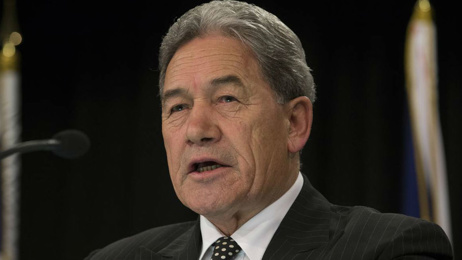Most of Golriz Ghahraman's childhood memories are of war.
She remembers howling sirens, sending families scurrying into basements. She remembers people being trapped. She remembers families trying to escape the country, fearful of being targeted for their beliefs.
Others simply disappeared.
"We knew one guy... a 16-year-old, a friend's cousin. He was writing graffiti on a wall and then he was gone," she says. "In the '80s people would just disappear. There's unmarked mass graves of people who had registered as communists. The regime was particularly harsh on political dissidents."
Ghahraman, the Green Party's newest Member of Parliament following the special vote count, was born in Iran in 1981 amid the post-revolution conflict with Iraq.
She was today confirmed as a new MP after the counting of almost 390,000 special votes.
The fighting stopped when she was eight. A year later the borders opened and her parents found a way to leave, booking a Government-sanctioned "holiday" to Malaysia.
"I think people knew what was happening because they were crying at the airport, but we had to be like, 'Bye, we're going to have a great time.' We couldn't sell the house or anything."
From Malaysia they booked flights to Fiji that had a stopover in Auckland, where they hoped they could seek asylum as political refugees.
After slipping out of transit and declaring themselves to an airport official, the family found staff more worried about potential biosecurity hazards than their visa status.
"There was a leaf in one of my shoes," Ghahraman says. "They were intensely interested in that, like almost sending it away for analysis.
Ghahraman liked her new country. It was okay to be a refugee in West Auckland; it was okay to be poor. Auckland Girls' Grammar was similarly diverse. She didn't feel special, or different to the other girls.
It wasn't until university - where she studied law to keep her parents happy and history to please herself - Ghahraman began to think more about her heritage.
"We aren't the proponents of terror"
"Nine-eleven shifted things for me," she says. "I'd forgotten that we were Iranian or Middle Eastern. I was just doing my thing and then I realised the way other people see you can be defining.
"So I started to own that identity."
Because she wore western clothes - Ghahraman isn't Muslim - and went to university, people liked to think she had been "rescued" from her own culture.
"But it's not like that. Yes we are from the Middle Eastern world but we aren't the proponents of terror. We've had to escape the terror but that doesn't make us not Middle Eastern.
"Our culture has diversity too, it has feminism and democracy movements."
The interest in her country's war and a broader interest in human rights led her to Amnesty International, where she set her sights on working as a prosecutor at international war crimes tribunals.
"I'm one of those freak shows that had a 10-year plan," she says. "I knew I had to get criminal law experience and a masters degree. So I did the bar, I did criminal law and I had an Oxford course bookmarked on my computer."
Those are the kinds of issues she says she wants to focus on in Parliament.
During the campaign, however, she faced abuse over a number of other unrelated issues - mainly from Twitter - such as comments about her ethnicity, her intelligence and her looks.
/arc-anglerfish-syd-prod-nzme.s3.amazonaws.com/public/KFTFCMPZORE2FES3VP4WTA2TQA.jpg)
Golriz Ghahraman, a criminal lawyer, is passionate about human rights. Photo/Doug Sherring.
Take your Radio, Podcasts and Music with you









